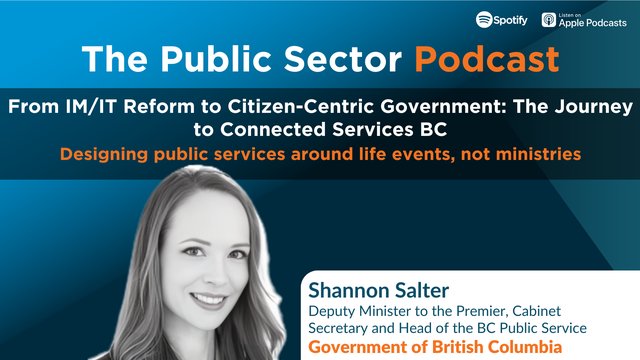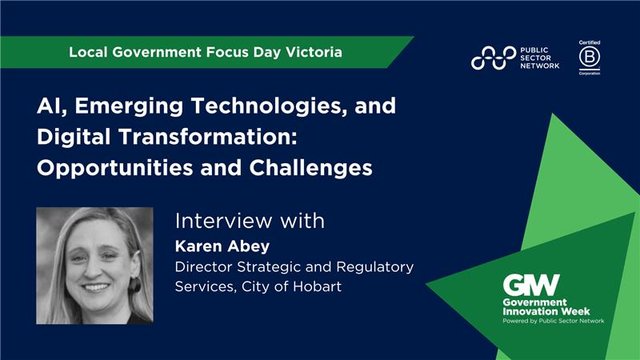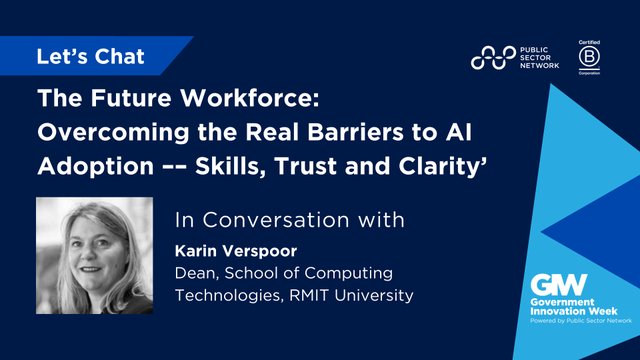
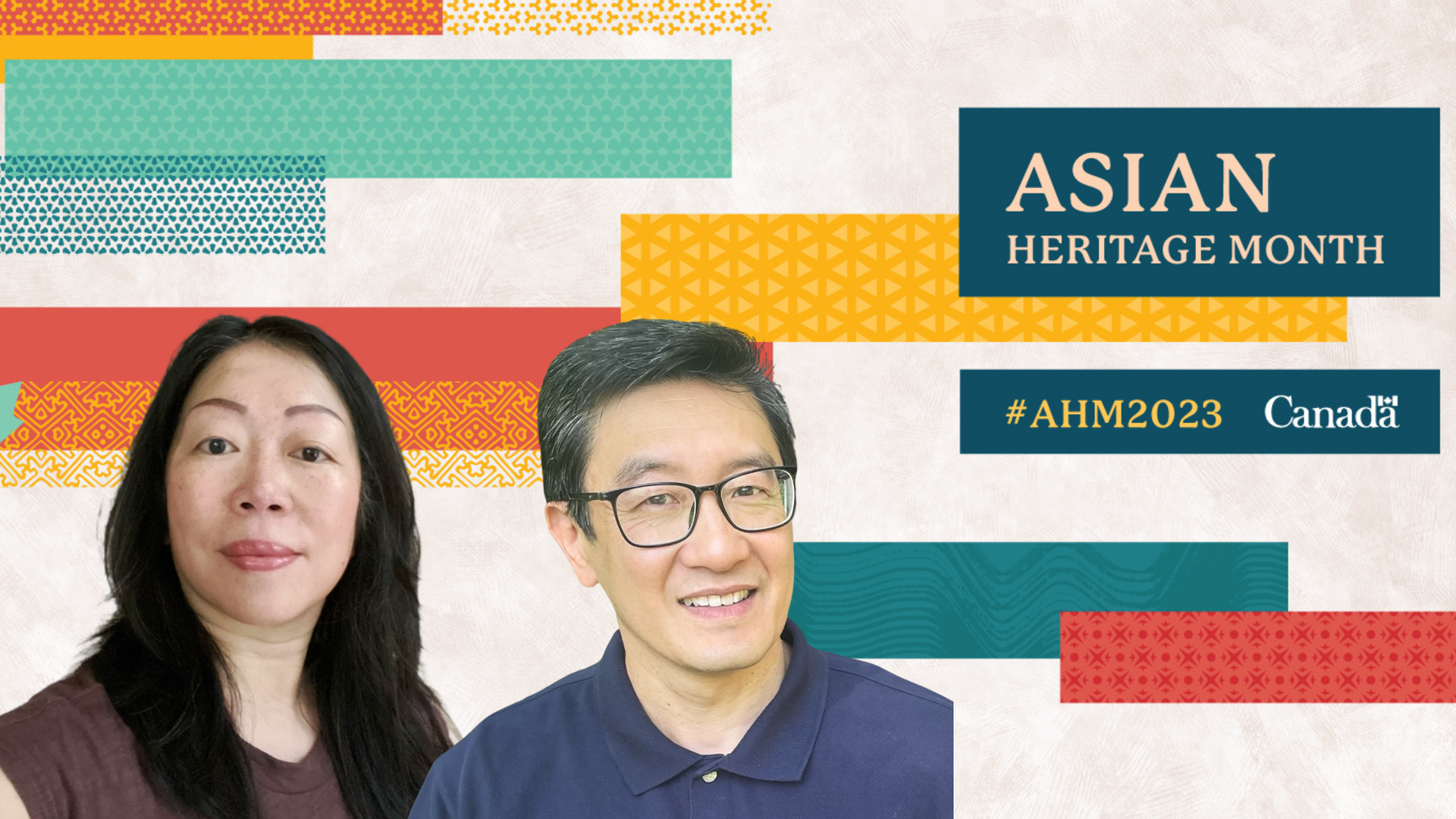
In May, we embark on a joyous and enlightening journey as we celebrate Asian Heritage Month in Canada. Throughout this month, we pay homage to the remarkable contributions, diverse traditions, and vibrant cultures of Canadians of Asian descent. In order to deepen our understanding, foster connections, and embrace the richness that Asian communities bring to our shared Canadian identity, we interviewed some of our expert Asian public sector leaders from our speaker faculty. Check out the interview below and Join us as we honor the tapestry of Asian heritage and embark on a collective exploration of the stories and legacies that have shaped our nation.
Christine Lau is the Manager, Digital Policy Division from Treasury Board Secretariat and Michael Lam, is the Chief Data Officer at Natural Sciences and Engineering Research Council of Canada (NSERC). Ahead of their sessions at Public Sector Network's Data Management & Analytics Roadshow this June, we sat down with Christine and Michael for an exclusive interview to find out more about their experiences as an Asian in government leadership, lessons learned, advice for younger generations, and much more. We hope their words will open your eyes and inspire you to be bold, to think big, and to make positive change.
.png)
Q1: Please tell us a bit about yourself. How did you get started in the public sector, and what do you love about your work?
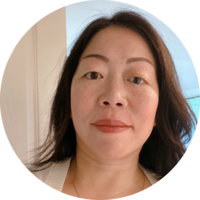 "I am a Chinese Canadian – a second-generation immigrant, born to immigrants from Hong Kong. I was born in and grew up in Montreal, Québec. I speak three languages: Cantonese, French and English. I am an economist by training and have worked in the Government of Canada for 20 years. I like to be challenged with new ideas and see chaos as an opportunity to change things for better.
"I am a Chinese Canadian – a second-generation immigrant, born to immigrants from Hong Kong. I was born in and grew up in Montreal, Québec. I speak three languages: Cantonese, French and English. I am an economist by training and have worked in the Government of Canada for 20 years. I like to be challenged with new ideas and see chaos as an opportunity to change things for better.
I am the Director for Service Health, formerly Service Policy, in the Office of the Chief Information Officer at the Treasury Board Secretariat of Canada. I got here because my passion is service to Canadians and working with people across the GC to achieve a common goal. Having worked in various capacities in different federal departments across the GC, working on service at TBS in 2007-09 has been my favourite gig. Therefore, I was happy to be able to return to a similar capacity a couple of years ago, bring experience acquired in the trenches, and carry on the work of many in this space. Canada has fallen behind a little in terms of international rankings and performance for service innovation and maturity, but with some mobilization and a lot of interest these days, I believe we can get back to the top, along with maturing in our digital journey."
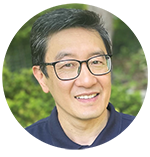 "I am the Chief Data Officer for the Natural Sciences and Engineering Research Council (NSERC). I never thought that at any time in my career that I would be in the data/IT space given that I trained as a research chemist and educator. I spent over 10 years in academia doing the usual gig: Ph.D., post-doc, research associate. Those years were tough with low pay and long hours either in the lab or writing proposals for grants. Looking back, academia is quite insane as a career path given how few positions are available at the end of it all. That’s why I started to look into the private and public sectors. My first job out of the academic space was with a start-up biotech firm which quickly went under so got into the public sector simply by being at the right place at the right time with the National Research Council. Once into the federal government space, there are many opportunities to move around and so I then moved to National Defence and eventually to NSERC where I have spent the last 11 years, the last two as CDO.
"I am the Chief Data Officer for the Natural Sciences and Engineering Research Council (NSERC). I never thought that at any time in my career that I would be in the data/IT space given that I trained as a research chemist and educator. I spent over 10 years in academia doing the usual gig: Ph.D., post-doc, research associate. Those years were tough with low pay and long hours either in the lab or writing proposals for grants. Looking back, academia is quite insane as a career path given how few positions are available at the end of it all. That’s why I started to look into the private and public sectors. My first job out of the academic space was with a start-up biotech firm which quickly went under so got into the public sector simply by being at the right place at the right time with the National Research Council. Once into the federal government space, there are many opportunities to move around and so I then moved to National Defence and eventually to NSERC where I have spent the last 11 years, the last two as CDO.
For me, NSERC is an amazing place to work as I am passionate about the mandate to support leading edge science and engineering research. I am always amazed at the discoveries that Canadian scientists make everyday, and it is satisfying to contribute to that, even if it is in a very small way. NSERC is Goldilocks sized for the federal government, not too big, and not too small so work on things like policy changes could have a large impact in the research community."
Q2: As an Asian (and a leader) who has spent 10+ years in public sector, how have you seen things evolve in terms of diversity & inclusivity since your career first began? Where do you feel there is still room to improve?
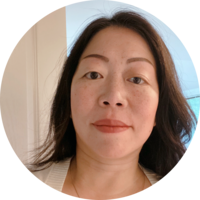 "Things have certainly changed in the federal public service in Canada over the 20 years of my career. It is more diverse and we finally talk a lot more about diversity and inclusion. People of visible minorities are also a bit less confined to scientific or accounting type jobs, but they are still lagging in numbers in the policy areas where decisions are taken and in the upper management ranks.
"Things have certainly changed in the federal public service in Canada over the 20 years of my career. It is more diverse and we finally talk a lot more about diversity and inclusion. People of visible minorities are also a bit less confined to scientific or accounting type jobs, but they are still lagging in numbers in the policy areas where decisions are taken and in the upper management ranks.
While we are talking more about diversity and inclusion in the open, concretely, more needs to be done to reduce unconscious bias in staffing and promotions. Affirmative actions such as sponsoring, mentoring and employment equity are still needed because it is simply harder for people of visible minority or with visible or invisible disabilities to progress the same way as their other colleagues.
I thought I hit the glass and bamboo ceilings a few years ago but others have encouraged me to continue in my growth and I am grateful for their encouragement. I will continue to work hard in the hopes that things will be easier for my girls’ generation and beyond.
Work from home has levelled the playing field a little. Hopefully, the government of Canada can continue to evolve the federal workplace to leverage the full benefits from diversity and inclusion."
 "When I started my career, equity, diversity and inclusivity (EDI) were not part of the equation especially in academia where the measurement of achievement is primarily about merit and excellence. In the public service, I have seen strides in the EDI space especially in areas of policy and representation. For example, at NSERC we have made EDI policies part of our programming so, applicants need to demonstrate how they address EDI in the course of their research and research management. This has made our research funding more accessible to under-represented groups – a step forward in diversity and inclusivity. Although we have made progress in the public sector, the data shows that more needs to be done in regard to representation of visible minorities and indigenous peoples and policies that support diverse cultures."
"When I started my career, equity, diversity and inclusivity (EDI) were not part of the equation especially in academia where the measurement of achievement is primarily about merit and excellence. In the public service, I have seen strides in the EDI space especially in areas of policy and representation. For example, at NSERC we have made EDI policies part of our programming so, applicants need to demonstrate how they address EDI in the course of their research and research management. This has made our research funding more accessible to under-represented groups – a step forward in diversity and inclusivity. Although we have made progress in the public sector, the data shows that more needs to be done in regard to representation of visible minorities and indigenous peoples and policies that support diverse cultures."
Q3: What does Heritage Month mean to you?
For Christine, Asian Heritage Month reminds her of the history and experience of Chinese immigrants, from those who came over from China in the 19th century, her parents’ move, and more recent ones, all in search of a land to make a better life for themselves. She is eternally grateful of the sacrifices her parents made to raise four kids in a foreign land and make it possible for her to have the fulfilling life that I have now.
Michael mentions that growing up as a first-generation immigrant, his mindset as a kid was to assimilate and not be different from western culture and ideals. There was no such thing as Heritage Month and frankly he avoided such events in efforts not to be different. He feels as though he lost some of his culture identity with this mindset and thus Heritage Month becomes an important event for him now to celebrate culture differences instead of pushing them aside.
Q4: Who is a strong role model for you in your career? Can you explain why, and how, they inspired you or helped you succeed? Concurrently - Why is it important to be a role model for other Asian in your field and in public sector?
 "In my career, there were not many Asian role models with the exception of David Suzuki. Born into a third-generation Japanese immigrant family during a time of internment makes his story of accomplishment in academia, journalism, and advocacy so inspiring. When I see him speak these days, I am reminded that it is important to reinvent yourself from time-to-time, to be courageous in your choices and not let others define what you can say and how you say it."
"In my career, there were not many Asian role models with the exception of David Suzuki. Born into a third-generation Japanese immigrant family during a time of internment makes his story of accomplishment in academia, journalism, and advocacy so inspiring. When I see him speak these days, I am reminded that it is important to reinvent yourself from time-to-time, to be courageous in your choices and not let others define what you can say and how you say it."

"There were few Asian role models when I was growing up but Margaret Cho stands out as one of few Asian female artists that even were known widely. I admire how she was alone in the field but it did not stop her from being herself and forging forward.
I am happy to share my experience and knowledge – and often share unsolicited advice – with new and Asian public servants. It was not easy for me but if I can help make it easier for others, I am happy to do so. The workplace can be sterile and lonely but I and others can help build the community."
Q5: What advice would you give to the younger generation of Asian in this field and more broadly within public sector? What is one piece of advice you wish someone had shared with you when you were just beginning your career?
 "Embrace your culture identity and promote how you are different from the pack. This applies to all areas of professional life and not just for milestones such as job applications and career progression. I know this is hard in the public service given that the culture tends to be rules based and prescriptive.
"Embrace your culture identity and promote how you are different from the pack. This applies to all areas of professional life and not just for milestones such as job applications and career progression. I know this is hard in the public service given that the culture tends to be rules based and prescriptive.
I wish someone had told me that my cultural identity was a strength and not something that I had to actively hide or erase. Thoughts of self-doubt and shame about being Asian is reinforced by Western culture and standards, have a profound impact in how one interacts with others in professional and personal lives. It took me a long time to realize this, and I am still sorting this out myself."
 "In any field in the public sector, I would say remain true to yourself. It is the best path. It might not be the easiest path but at the end of the day or at the end of your career, you can be proud of what you did and no one can take that away from you. I have been heavily influenced by Stephen R. Covey’s The 7 Habits of Highly Effective People, which I read in my formative years, so I always ask myself, is this the best decision I made with the available information at the time? If the answer is yes, then, I can sleep well at night, in addition to knowing that I made decisions in alignment with my values.
"In any field in the public sector, I would say remain true to yourself. It is the best path. It might not be the easiest path but at the end of the day or at the end of your career, you can be proud of what you did and no one can take that away from you. I have been heavily influenced by Stephen R. Covey’s The 7 Habits of Highly Effective People, which I read in my formative years, so I always ask myself, is this the best decision I made with the available information at the time? If the answer is yes, then, I can sleep well at night, in addition to knowing that I made decisions in alignment with my values.
One piece of advice I wish someone would have shared with me when I just beginning my career is that I am first and foremost a person, regardless of my gender or race, and that I deserve to be me and be at the table as much as anyone else."
For more about Asian Heritage Month initiatives, please visit https://www.canada.ca/en/canadian-heritage/campaigns/asian-heritage-month.html


